Search Results
Showing results 581 to 600 of 690

Trail Impact Study
Source Institutions
In this outdoor activity, learners plan a simple foot path and create an environmental impact study of the natural area where the path would be.
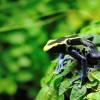
Frog Olympics
Source Institutions
Did you know that a bullfrog can jump a distance of 10 times its body length? Learn more about nature's most acrobatic amphibian, the frog, through this set of short, hands-on activities.

Habitable Worlds
Source Institutions
In this group activity, learners consider environmental conditions—temperature, presence of water, atmosphere, sunlight, and chemical composition—on planets and moons in our solar system to determine

Seed Adaptations
Source Institutions
By participating in a seed scavenger hunt, learners examine many adaptations of seeds, including how many seeds a plant makes, how those seeds travel to new locations, and what protects them from pred
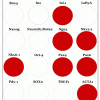
Microarrays and Stem Cells
Source Institutions
In this activity, learners use microarray technology to determine which genes are turned on and off at various points in the differentiation of pluripotent stem cells on their way to becoming pancreat
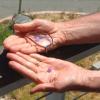
Exploring Ultraviolet (UV) light from the Sun
Source Institutions
In this outdoor activity, learners explore UV rays from the Sun and ways to protect against these potentially harmful rays.
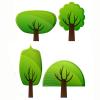
Give or Take?
Source Institutions
In this outdoor activity, learners work in pairs using their senses—especially touch—to learn more about individual trees.
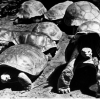
The Adaptation Game
Source Institutions
To convey the concept of how animals adapt to survive, this game asks learners to imagine what adaptations a given animal would need to live in a certain environment—including environments where such
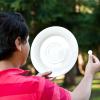
Big Sun, Small Moon
Source Institutions
Learners will explore the concept of angular distance, and investigate why the moon appears to be the same size as the sun during a solar eclipse, despite the sun being much larger.

Cool It
Source Institutions
In this outdoor activity/game, learners use thermometers to simulate how lizards survive in habitats with extreme temperatures.
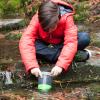
Window Under Water
Source Institutions
Glare from the sun and ripples from the wind can make it hard to see what's below the surface of a body of water.
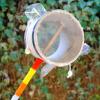
Torsion Drum
Source Institutions
In this activity, learners build a musical drum using a cardboard tube, plastic wrap, and beads.

Exploring Fabrication: Gummy Capsules
Source Institutions
In this activity, learners make self-assembled polymer spheres.

Seeing Is Believing
Source Institutions
This activity is designed to accompany the PBS documentary about African-American chemist "Percy Julian: Forgotten Genius." Learners look through two cups with small holes in them to simulate what it'

Mystery Shapes
Source Institutions
In this activity, learners describe an object they can’t see. After someone picks outs a few mystery objects and places them in a pillowcase, learners will investigate using only their hands.

Artificial Intelligence: The Intelligent Piece of Paper
Source Institutions
This activity explores what it means for a computer to be intelligent and introduces the topic of what a computer program is and how everything computers do simply involves following instructions writ

Starch Breakdown
Source Institutions
Learners use Benedict’s solution and heat to test for the presence of simple sugars in glucose, sucrose, starch, and starch combined with amylase.

Size Wheel
Source Institutions
In this fun sticker activity, learners will create a size wheel with images of objects of different size, from macroscopic scale (like an ant) to nanoscale (like DNA).

Bean-Counter Evolution
Source Institutions
In this simulation game, learners play as predators equipped with genetically different “mouths” (utensils) and hunt for “prey” (assorted beans).

Mix-N-Match Light
Source Institutions
This is an online exhibit about color perception. Learners set a random background color and then try to mix red, blue, and green light to match.
